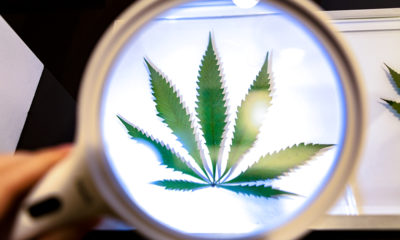
Medical
Study Shows Cannabis Use During Pregnancy Doesn’t Affect Neurodevelopment of Children
A recent study found no association between cannabis use during pregnancy and neurodevelopmental problems such as autism and ADHD.
A new study has shown that cannabis use during pregnancy is not associated with differences in the neurodevelopment of children exposed to cannabis in the womb. The study, which was published last month in the peer-reviewed journal Paediatric and Perinatal Epidemiology last month, found that prenatal cannabis exposure was not associated with lower scores on neuropsychological tests in children or with autism among young adults.
“Prenatal marijuana exposure was not associated with secondary outcomes or risks of clinical deficit in any neuropsychological assessments,” the authors of the study wrote.
To conduct the study, researchers affiliated with Columbia University and the University of Western Australia, Perth used data on 2,868 children from the Raine Study, one of the world’s largest prospective cohorts of pregnancy, childhood, adolescence and adulthood, to analyze the progression of prenatal cannabis exposure from pregnancy through age 20. The children in the study underwent neuropsychological testing at age 10, and again as young adults aged 19 or 20.
The researchers designed the study to control for a wide range of clinical and sociodemographic factors that might affect the outcome of the results. The study was also conducted over a long time span, much longer than other studies that have attempted to investigate the potential outcomes of prenatal cannabis exposure. Because of the study’s characteristics and its robust sample size, the research helps provide a better idea of what prenatal cannabis exposure can do to unborn children.
With the study’s controls in place to account for confounding factors, the researchers found no association between exposure to cannabis in the womb and neurodevelopmental outcomes. Specifically, the authors of the study determined that prenatal exposure to marijuana “was not associated with worse neuropsychological test scores at age 10 or autistic traits at 19-20,” according to their conclusions.
The researchers noted limitations of their study, including changes in the average potency of cannabis products and evolving methods of ingesting the drug over the last few decades. The researchers studied children born between 1989 and 1992, meaning they were likely exposed to less potent cannabis than what is available today. The researchers noted that “further research is warranted in a more contemporary birth cohort with a range of neuropsychological outcomes to further elucidate the effect of prenatal marijuana exposure on neurodevelopment.”
Other Research Inconclusive
The results of previous studies investigating the effects of prenatal cannabis exposure have been inconsistent. Some studies have shown an increase in neurodevelopmental differences such as autism, ADHD and anxiety in children who were exposed to cannabis in the womb, while others have not revealed such associations.
A systematic review of available research published in 2020 found that cannabis use during pregnancy may be associated with ADHD and related symptoms such as anxiety in children exposed to cannabis in utero. A separate study published the same year found that children whose mothers used cannabis while pregnant were 50% more likely to be diagnosed with autism. However, some experts note these studies may not be reliable because of limitations including problems with the methodology of the original research the studies are based on and small sample sizes.
Like the study published last month, other research has not found associations between prenatal cannabis exposure and neurodevelopmental problems in children.
A 2021 study found no association between cannabis exposure in the womb and autism when confounding factors such as the education of the mother and the use of alcohol and tobacco were controlled for. Another study published this year found that when maternal stress, a factor associated with both autism and cannabis use, was controlled for, no association between prenatal cannabis exposure and autism was found.
Expert Recommends Caution
Cannabis use during pregnancy is controversial, with many healthcare professionals warning that it should be avoided at all costs. Some cannabis advocates argue the dangers are overstated and that using cannabis during pregnancy can help relieve symptoms of morning sickness and alleviate stress, allowing pregnant women to get the nutrition and rest they need for a healthy pregnancy, among other benefits.
Dr. Peter Grinspoon, a primary care physician at Harvard Medical School and Massachusetts General Hospital and the author of “Seeing Through The Smoke: A Cannabis Specialist Untangles the Truth About Marijuana,” believes that there is still too much that is not known about how the drug can affect an unborn baby and cautions against cannabis use during pregnancy.
“It has not been conclusively demonstrated that cannabis is (or isn’t) safe during pregnancy or breastfeeding. As such, the prudent thing to do is to presume that cannabis use, especially regular, heavy cannabis use, is unsafe during pregnancy and breastfeeding until we uncover reasonable evidence that it is safe,” Grinspoon writes in the book. “Given what’s at stake, the burden of proof is on cannabis in this case. That means cannabis ought to be avoided or minimized by anyone who is pregnant or breastfeeding. Women who might become pregnant need to be carefully educated about the risks.”






















